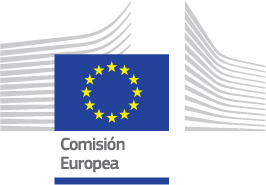Rethinking classroom smartphone use: the kaleidoscope in your pocket
Descripción del curso
What if we stopped perceiving smartphones as distraction and started seeing them as kaleidoscopes? Each time we shift our perspectives, new learning patterns emerge, such as unlocking pupils’ digital skills, creating new collaboration contexts within the classroom, or even exploring new assessment methods that benefit both pupils and teachers.
This tutorial invites educators to reconsider the role of smartphones in the classroom—not as fixed threats, but as dynamic, purposeful tools. Through the metaphor of the kaleidoscope, you'll be guided to explore the many "facets" of smartphone use with a critical and creative lens. Moving beyond the simple “ban or use?” debate, this tutorial blends theory, practical examples, and reflection to help you reframe mobile devices as partners in learning—while keeping ethical and responsible use in focus.
The course is offered by the European School Education Platform. Visit our website for more information.
Duration and workload
Start and end date: open-ended, you can take this course (or any section) at your own pace
Duration: self-paced
Workload: 30 minutes
For more information about the competences and the proficiency levels see the SELFIE for TEACHERs toolkit.
Público objetivo
Primary and secondary school teachers, teacher trainers and education professionals interested in learning more about the ethical and beneficial use of smartphones in the classroom and the development of basic digital skills among younger people.
Objetivos de aprendizaje
- Identify the advantages and disadvantages of using smartphones in the classroom.
- Discover accessible apps to support creativity, collaboration, and engagement.
- Explore key ethical considerations, including digital well-being and data privacy.
- Use the kaleidoscope metaphor to rethink how smartphones can support flexible, meaningful instruction.
Este contenido es ofrecido por la Comisión Europea. La Comisión Europea es el brazo ejecutivo políticamente independiente de la Unión Europea. Es el único responsable de elaborar propuestas de nueva legislación europea y ejecuta las decisiones del Parlamento Europeo y del Consejo de la Unión Europea

Agenda
- Tutorial roadmap: What you need to know
- Tutorial - Rethinking classroom smartphone use: the kaleidoscope in your pocket


